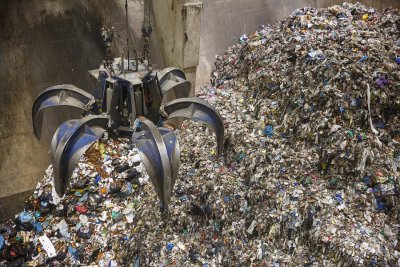There are all different types of waste near Atlanta, and the way you should handle your waste depends on the kind that you’re dealing with. The terms solid, hazardous, and toxic are 3 adjectives used to describe different types of waste. While solid waste is relatively easy to recognize and understand, the terms hazardous and toxic tend to throw people off. Knowing what kind of waste you have is important when it comes to choosing the proper type of waste disposal, and you can always ask your waste management professional for help . Keep reading for a brief overview of the differences between solid, hazardous, and toxic waste. 
Solid
The category of solid waste might seem self-explanatory, but it may also include more than you expected. Solid waste refers to the garbage in your trashcans, but it also includes wastes of different states of matter. Liquid and gaseous wastes, like sludge and pollutants, can also fall under the umbrella of solid waste. Municipal solid waste, or MSW, is the name for general solid waste that comes from public garbage cans or residential homes. Much solid waste can be recycled, especially materials like plastic and aluminum, but a great deal of it also ends up in landfills.
Hazardous
When a waste material is considered hazardous, it no longer fits within the realm of solid waste. However, hazardous waste is not exactly the same as toxic waste. The Environmental Protection Agency outlines a few criteria that can qualify a particular type of waste as hazardous. Waste that is corrosive, flammable, or reactive can be considered hazardous, but toxicity is also a potential component of hazardous waste. It’s important to handle hazardous waste carefully, which is why the job is usually left for the professionals.
Toxic
Unlike solid and hazardous wastes, toxic waste is a very specific type. According to the Environmental Protection Agency, waste must be harmful or deadly to people or animals that ingest it. Thus, toxic waste still falls under the category of hazardous waste, but it’s not the same thing. You will also need a professional to handle toxic waste.

